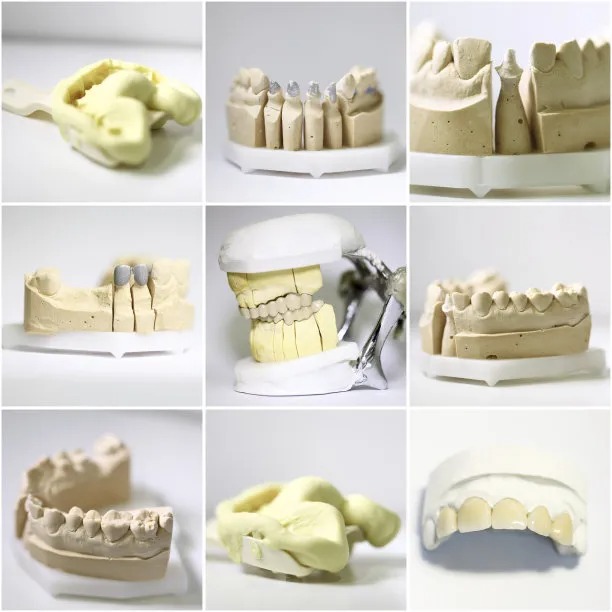Exploring the Benefits and Innovations of Dental Implant Treatment for a Brighter Smile and Enhanced Oral Health
Summary: Dental implant treatment has transformed the landscape of restorative dentistry, offering not only aesthetic improvements but also significant enhancements to oral health. This article delves into the multifaceted benefits of dental implants, ranging from their impact on self-confidence and oral function to advancements in technology that streamline the implantation process. We will explore how dental implants contribute to overall oral health, improve quality of life, and adapt to innovative techniques that make the procedure more accessible and effective. By understanding these aspects, patients can make informed decisions and enjoy a brighter smile.
Enhancing Confidence and Aesthetics

One of the most significant benefits of dental implants is their ability to enhance ones appearance. Unlike traditional dentures, which may not fit securely and can slip when speaking or eating, dental implants offer a permanent solution that mimics the look and feel of natural teeth. This natural appearance can drastically boost a persons self-esteem, allowing them to smile without hesitation.
The aesthetics of dental implants are superior due to the customization involved in their creation. Dental professionals craft the implants to match the color, shape, and size of the patients existing teeth, resulting in a seamless integration that enhances ones overall facial structure. This personalization plays a crucial role in ensuring that patients feel confident in their smiles.
Moreover, having a complete set of teeth contributes to a positive self-image. Many individuals with missing teeth often feel self-conscious and may avoid social situations. Dental implants allow them to regain their confidence, facilitating social interactions and improving their quality of life, which leads to enhanced psychological well-being.
Improving Oral Function and Comfort
Dental implants not only prioritize aesthetics but also significantly improve oral function. Patients with missing teeth often experience challenges in chewing and speaking. Implants restore natural bite force, allowing individuals to consume a full range of foods without discomfort or the fear of their prosthetics slipping out.
The functionality of dental implants is complemented by their stability. Once placed, an implant integrates with the jawbone in a process called osseointegration, which secures it firmly in place. This stability provides comfort and confidence while performing daily activities, such as eating and speaking, making them a highly effective solution when compared to removable dentures.
Additionally, implants require no special maintenance compared to dentures, which often need adhesives and periodic replacements. Patients with dental implants can enjoy a regular oral hygiene routine, similar to how they care for their natural teeth, making it a convenient option for those seeking durability and ease of care.
Advancements in Dental Implant Technology
The field of dental implants has benefitted immensely from technological advancements. Innovations such as 3D imaging and computer-assisted design significantly enhance the planning and execution of the implant procedure. These technologies allow dental professionals to create more precise surgical guides that lead to better placement of implants.
Moreover, modern materials used in dental implants have improved biocompatibility, which reduces the risk of complications and enhances the longevity of the implants. Titanium, which is often used in making implants, bonds well with the jawbone, providing a stable foundation for artificial teeth.
Laser technology and computer-guided surgery have also made the process less invasive, resulting in shorter recovery times and reduced discomfort for patients. As these innovations continue to evolve, the success rates of dental implants are expected to rise, making them an increasingly viable option for those seeking restorative solutions.
Contribution to Long-Term Oral Health
An often-overlooked benefit of dental implants is their positive impact on oral health. Unlike traditional bridges that require adjacent teeth to be altered, dental implants do not compromise neighboring teeth. This aspect preserves the integrity of natural tooth structures, promoting better oral health over time.
Additionally, dental implants stimulate the jawbone in a manner similar to natural teeth. With tooth loss, the jawbone can begin to deteriorate, leading to further dental issues and an aged appearance. Implants counteract this effect, maintaining jawbone density and supporting facial structure.
Furthermore, by preventing bone loss and preserving surrounding teeth, dental implants can also decrease the likelihood of developing gum disease and other dental complications, ensuring that patients maintain optimal oral health long-term. This comprehensive benefit makes dental implants a remarkable investment in one’s future wellbeing.
Summary:
In conclusion, dental implants represent a transformative advancement in restorative dentistry that offers numerous benefits. From aesthetic enhancements and improved oral function to cutting-edge technology and positive impacts on oral health, these implants provide a comprehensive solution for anyone seeking to replace missing teeth. As we continue to embrace innovations in this field, the path toward a brighter smile and enhanced overall health becomes increasingly accessible.
This article is compiled by Vickong Dental and the content is for reference only.



